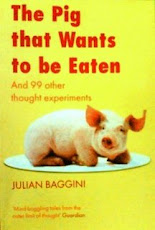I choose to help the drowning woman.
It is a sad state of the world that this story conveys, one of selfishness and a convoluted meld of economics and humanity. There are some with more than enough but refuse to share with those who have too little to survive.
Isn't it surprising that all this happening? As kids, we've been taught to share and help those in need. Most religious folks subscribe to this notion too. But at the international level, countries run by governments full of adults are powerless to fix the problems of the sick and the poor. Are these adults are simply falling prey to politics, overwhelmed by national concerns, or have hands tied by megacorporations who fund their aspirations? Do they not care?
Taking a look at the big picture, it seems that helping people is bound by national boundaries. You can't simply go give money or help people in a foreign land without problems. Unless your're Jesus Christ and have a miracle on hand to impress immigration. Even the UN seems powerless to make things happen or usually take action too late. It's frustrating eh.
If we want to extrapolate the issue, it goes beyond helping people. It extends to the way we treat our planet, the animals and the sea. We use without concern and care. Eventually the lifeboat won't be a place to survive on.
Sunday, March 4, 2007
Subscribe to:
Post Comments (Atom)
.jpg)
5 comments:
nice blog,nice article.
Just let things come. Do what you can. But let go when the time comes.
Such a nice blog. I hope you will create another post like this.
I'd love to see you comment on the paradoxes presented in The Pig That Wants To Be Eaten. As a big philosophy digester, I'd also like to comment that your blog is very nice. If you are interested, please post about the other 78 Thought Experiments, and I'll be sure to comment
There is a key debate in this one. It is the difference between what we say we would do and what we do in our everyday life. We may say that we would help others, but in our everyday life many of us buy cheap goods without asking if this comes from an exploitative system. We often vote for the party that promises to maintain or improve our standard of living and not for those who suggest that we must cut back some so that others may live.
Post a Comment